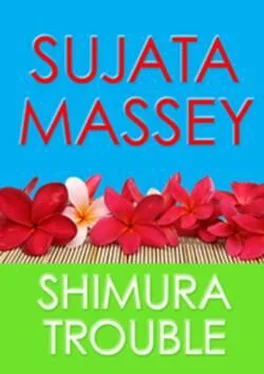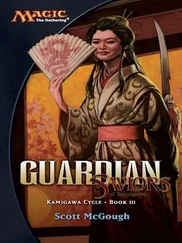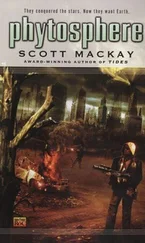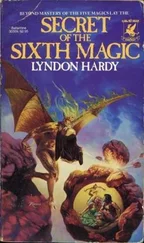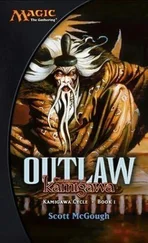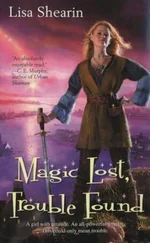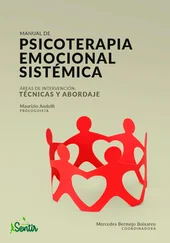Sujata Massey - Shimura Trouble
Здесь есть возможность читать онлайн «Sujata Massey - Shimura Trouble» весь текст электронной книги совершенно бесплатно (целиком полную версию без сокращений). В некоторых случаях можно слушать аудио, скачать через торрент в формате fb2 и присутствует краткое содержание. Жанр: Детектив, на английском языке. Описание произведения, (предисловие) а так же отзывы посетителей доступны на портале библиотеки ЛибКат.
- Название:Shimura Trouble
- Автор:
- Жанр:
- Год:неизвестен
- ISBN:нет данных
- Рейтинг книги:3 / 5. Голосов: 1
-
Избранное:Добавить в избранное
- Отзывы:
-
Ваша оценка:
- 60
- 1
- 2
- 3
- 4
- 5
Shimura Trouble: краткое содержание, описание и аннотация
Предлагаем к чтению аннотацию, описание, краткое содержание или предисловие (зависит от того, что написал сам автор книги «Shimura Trouble»). Если вы не нашли необходимую информацию о книге — напишите в комментариях, мы постараемся отыскать её.
Shimura Trouble — читать онлайн бесплатно полную книгу (весь текст) целиком
Ниже представлен текст книги, разбитый по страницам. Система сохранения места последней прочитанной страницы, позволяет с удобством читать онлайн бесплатно книгу «Shimura Trouble», без необходимости каждый раз заново искать на чём Вы остановились. Поставьте закладку, и сможете в любой момент перейти на страницу, на которой закончили чтение.
Интервал:
Закладка:
“Well, I suppose that now that the land is cleared of brush, it will be easier for Mr. Kikuchi’s development plans, although I imagine he’ll try and drop the price he’s willing to pay you, citing the unfortunate damage to historic structures.”
JP’s expression seemed to have changed from open to guarded in an instant. “You said you had a question about land, but I didn’t realize you were one of the anti-Kikuchi agitators. Who pays your salary, Honolulu Heritage? Or do you do it as a volunteer?”
“Honey,” Michael said softly.
“We’re not preservationists, I swear, although I really do like old places, and old things.” JP didn’t look any more relaxed, so I added, ‘I work out of the home so I’m afraid I don’t have a business card. Michael, why don’t you give JP your card?”
Michael’s State Department card was impressive-looking, and only slightly fake. Josiah Pierce looked it over carefully then said, “Last fellow I know with a job like this wound up with a bad case of blowfish poisoning.”
“I’m glad we’re not having sushi for lunch, then,” Michael said, smiling rather faintly.
“What are you really here for?” JP’s voice was cold.
“As I said over the phone, I’m trying to put family history in order. Some of my relatives worked at the plantation from the twenties through the forties.”
“Shimura,” said Josiah Pierce, his sharp eyes fixing on me. “You’re not using Hendricks as your last name, but Shimura. Are you one of the family with the failed lawsuit?”
“Sort of,” I began. “I didn’t know about the lawsuit until recently, and the Hawaiian Shimuras are technically my third cousins.”
“The Circuit Court dismissed Edwin Shimura’s case for lack of evidence. How could he have thought he could claim land without a deed?”
“I understand your point. It’s just that, when I hear my great-uncle’s account-I’m talking about Yoshitsune Shimura, who was a child on the plantation-I believe he’s being as honest as he can be.”
“Can be?” Mr. Pierce sounded markedly sarcastic.
“He’s eighty-nine years old. There are things he remembers, and things he has no idea about, because his mother, Harue Shimura, didn’t tell him everything and she died while he was away in a Japanese-American internment camp on the mainland. What my great-uncle told me was that he saw a letter signed by your father in his mother’s chest of drawers. The letter described the gift of a seaside cottage to her. I should probably mention that he found this at the time he was living within the seaside cottage, so he assumed all was well and normal.”
“What else did he tell you?”
“Yoshitsune lived there with his widowed mother until he was sent to an internment camp on suspicion of espionage. He wound up leaving the camp to serve as a translator with the OSS, and when the war was over, he returned to Hawaii and found the house had been taken over by a family called Liang. Your father had passed away, so he asked your mother about it, and she said she didn’t know anything about the matter.”
“Natalie Talbot Pierce was my stepmother, remember that, and she really didn’t know anything, because to her, the plantation was a hot, dirty place she didn’t like to visit. It’s a shame he didn’t come to me, because I have an idea what might have happened.”
“You do? Well, why didn’t you say anything at the trial?” I asked.
“Maybe because there was no trial,” Michael suggested.
“That’s right, and I think if things had been handled personally between us, with more aloha, I would have said something. But I’m not sure I should tell you, because my guess is you’ll get the lawyers revved up again, causing me legal and PR trouble at a time when I have my hands full just dealing with my ranchers who are going to want all kinds of compensation and favors because their horses burnt to death in my fields.”
I bit my lip, thinking how I’d misjudged the man, and the situation. Things were deteriorating as fast as I was shredding my bread roll. I put my hands on my lap, to control them.
“Mr. Pierce, I’m very sorry we disturbed you,” Michael said to fill the awkward silence.
“You think I’m just like the Big Five, don’t you? Big, bad landowners, abusers of the masses?”
“I don’t think it’s as simple as that,” I said.
“Drive farther along the coast, and you’ll come to Maile Beach and see hundreds of tents on the grass. It’s an impromptu housing development for the homeless, who come from all over the island because they can’t afford a roof over their head. Hawaii wasn’t like that in sugar plantation days.”
“I have to agree,” Michael said. “When I was here in school, and there were still a few sugar plantations going, there weren’t any homeless, unless you count drunks in Chinatown.”
“We had flophouses then,” JP said, seeming to relax slightly. “Now they’re fancy boutiques and restaurants.”
“I think we’re getting away from the topic,” I said. “Look, I know my relatives in Hawaii will not get that acre and a half they’re dreaming of. All I really hope for is a better idea of why your father might have visited Harue Shimura in her house one evening, when Yoshitsune was a boy.”
Josiah Pierce looked at me for a long moment, and then said, “Do you know what year that was?”
“Uncle Yoshitsune was in his mid-teens. He’d finished high school and had started at the post office.”
“There was a fire on the plantation in 1938, a regular burn that we’d scheduled for a field that needed rest. Unfortunately, the wind changed. A spark jumped to the mill, and it was ablaze before anyone noticed. Not everyone escaped.”
Michael and I sat in silence, waiting for more.
“Some people said it was the luna’s mistake for going ahead with a scheduled burn on a day with wind. Others said it was my father’s fault for wanting to have every field perfect when the demand for Hawaiian sugar was dropping. Who knows? It was a bad fire, an unlucky wind, and nine men died.” He looked from the distance back at us. “All of the men who died had wives and children. These are the women my father visited personally to give condolences, and offered help with housing outside the village, if they chose to leave.”
“Kind of like death compensation?” Michael said.
“We didn’t have fancy union terminology in those days. We just called it doing the right thing.”
“That couldn’t have been the reason Harue was given a house,” I said. “You see, her husband, Ken Shimura, wasn’t working at the mill in 1938. He’d left for the Big Island by 1926. He worked on another Pierce plantation there, and I guess passed away there, because Yoshitsune never saw him again.”
“You don’t say.” JP’s words came slowly, and he seemed to be studying me as sternly as when I’d casually said the words about Mitsuo Kikuchi that had sent him into a fury.
“What can you tell me about the Liangs, the family to whom the house is still leased?”
Michael cleared his throat. “Honey, this has all gotten a bit awkward, especially after Mr. Pierce-JP-has been so generous as to give us lunch.”
“I have no problem telling you what I know, but it’s not much. Winston Liang was the son of a good Chinese worker who’d already retired and moved into Waipahu, running a laundry. Winston asked my father if he could lease the cottage and land around it. It was as simple as that, and you know, all things considered, it was a good move; from the fishing business he started there, he made enough money to buy a house in town, and then another-and lo and behold, today he’s gone, had a heart attack over-eating at Zippy’s, but his surviving heir is one of the biggest Chinese property owners on Oahu.”
Читать дальшеИнтервал:
Закладка:
Похожие книги на «Shimura Trouble»
Представляем Вашему вниманию похожие книги на «Shimura Trouble» списком для выбора. Мы отобрали схожую по названию и смыслу литературу в надежде предоставить читателям больше вариантов отыскать новые, интересные, ещё непрочитанные произведения.
Обсуждение, отзывы о книге «Shimura Trouble» и просто собственные мнения читателей. Оставьте ваши комментарии, напишите, что Вы думаете о произведении, его смысле или главных героях. Укажите что конкретно понравилось, а что нет, и почему Вы так считаете.
